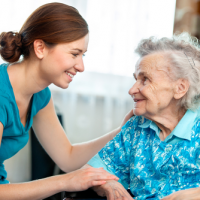4 Signs Your Loved One Needs Extra Assistance At Home

Hospice care is designed for patients with life-limiting illnesses. In many cases, it allows these patients to avoid prolonged hospital stays and spend their final months comfortably in their own home. Depending on their situation, they may even be able to remain largely independent. Situations for patients with serious illnesses, and elderly adults, can change quickly, however. It's important for families and care givers to be mindful of warning signs that might suggest extra help around the house is needed. Here are a few of those warning signs.
Mail piling up
When day to day tasks become more difficult, many individuals begin ignoring daily chores, or just forgetting about them completely. That could mean that mail goes unchecked and left in the mailbox for weeks at a time, or that mail piles up unopened. Similarly, bills may go unpaid and past the due dates, which can lead to water or power being turned off, or possibly evictions. You can also watch for signs of cognitive decline if a loved one struggles with reading or understanding mail, for example, being unable to identify clear junk mail.
Untidy house
Some people keep a cleaner house than others, so the fact that a home is cluttered doesn't necessarily mean anything. When there's a sudden change in the cleaning habits of an individual, however, it could signal a problem. If you notice that a usually clean individual has stopped vacuuming, or has allowed clutter to accumulate, it could be a sign that they need help around the house keeping up with chores. You may also notice a reluctance to get rid of items, or even to take out trash. All of these should be considered warning signs.
Refrigerator change
Another area to keep an eye on is the refrigerator. If mobility is limited, making trips to the grocery store can be a daunting task. That often leads to a lack of food in the fridge, and expired food items remaining in the house. It's vital that you keep an eye out for a lack of fresh food because that also signals that your loved one may not be eating enough. Watching their refrigerator allows you to take action before weight loss becomes apparent and dangerous.
Memory lapses
Being easily distracted or showing short-term memory lapses can be a sign of cognitive decline. There are a number of things around the house that could help you identify this issue. Forgetting to take medication is perhaps the most serious. Help your loved one organize their medication into pill boxes so you can both easily tell when medication hasn't been taken. You can also look for signs of household accidents, like allowing food to burn by forgetting pots on the stove. If it's an isolated incident, it could mean nothing, but if it happens repeatedly, it could be a warning sign.
Additionally, always be aware of signs of depression in adults who live alone. Even if there are no other issues present, depression can be debiliatating and, as we age, our risk increases. Signs of depression could include phone calls at odd hours, a reluctance to leave the house, odd sleeping patterns or a loss of interest in their favorite activities.
If you think hospice care could benefit you or a loved one, we at Cura-HPC invite you to contact us to learn more. For answers to your questions about hospice and treatment options, call us at 800-797-3839.